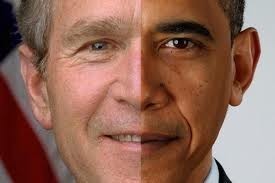ACLU sues over NSA surveillance program
The American Civil Liberties Union filed a lawsuit Tuesday challenging the constitutionality of the U.S. government surveillance program that collects the telephone records of millions of Americans from U.S. telecommunications companies.
 It is the first substantive lawsuit following reports in The Washington Post and the Guardian last week that detailed two vast surveillance programs run by the National Security Agency under laws authorized by Congress after the attacks of Sept. 11, 2001.
It is the first substantive lawsuit following reports in The Washington Post and the Guardian last week that detailed two vast surveillance programs run by the National Security Agency under laws authorized by Congress after the attacks of Sept. 11, 2001.
Members of Congress and the White House are defending a top-secret NSA program that continues to collect data from millions of phone records, but civil liberties supporters remain skeptical. The Washington Post’s Ellen Nakashima explains.
The ACLU suit, filed in the U.S. District Court for the Southern District of New York, challenges the legality of the spy agency’s collection of customer “metadata,” including the phone numbers dialed and the length of calls. The lawsuit asks the court to force the government to end the program and purge any records it has collected, and to declare that the surveillance is unconstitutional.
The program, details of which were first disclosed by the Guardian, collects such information, used by intelligence analysts to detect patterns and personal connections, on every phone call made or received by U.S. customers of major American phone companies. The once-secret program was acknowledged last week by Director of National Intelligence James R. Clapper Jr., who is named in the ACLU lawsuit.
The disclosures of the NSA’s operations have generated concern across party lines, illustrated Tuesday by sharp criticism and new requests on Capitol Hill from members of President Obama’s party.
Sen. Dianne Feinstein (D-Calif.) said Tuesday that the Senate Intelligence Committee, which she chairs, has asked the NSA’s director to declassify some information to better explain the programs. Senior intelligence and Justice Department officials also briefed House lawmakers late Tuesday on the NSA’s phone-tracking program, according to lawmakers who attended.
The debate surrounding the surveillance has revived an unresolved question of post-Sept. 11 American life — how much privacy should be sacrificed to enhance security. It has also brought new scrutiny on Obama’s promise to better strike that balance after what he has called the national security excesses of the George W. Bush administration.
Early Tuesday, Sen. Ron Wyden (D-Ore.), a member of the Intelligence Committee, accused Clapper of failing to give a “straight answer” about the scope of the NSA’s surveillance programs during a committee hearing in March.
During that open hearing, Wyden, a longtime critic of the administration’s surveillance policy, asked Clapper whether the NSA collects “any type of data at all on millions or hundreds of millions of Americans.” Clapper responded, “No, sir.”
But the recent disclosures of the NSA surveillance initiatives, which the Obama administration says are separately authorized under the Patriot Act and the Foreign Intelligence Surveillance Act (FISA), has focused attention on the truthfulness of Clapper’s response.
In addition to the phone records collection, The Post reported on a surveillance program known as PRISM, which allows the government to collect video, photos, e-mails, documents and connection logs for the users of nine leading Internet companies. The government obtained the data through orders approved by the secret court established by FISA.
In an interview with NBC News over the weekend, Clapper, who complained at the start of his March appearance on the Hill that “an open hearing on intelligence matters is a contradiction in terms,” said that his answer to Wyden was the “least untruthful” he could provide given the secret nature of the program.
Asked Tuesday whether Obama believes the national intelligence director had been truthful in his testimony, White House press secretary Jay Carney said, “He certainly believes that Director Clapper has been straight and direct in the answers that he’s given and has actively engaged in an effort to provide more information about the programs that have been revealed through the leak of classified information.”
Wyden was one of eight senators, including two Republicans, who proposed legislation Tuesday that would force the government to declassify “significant” rulings of the Foreign Intelligence Surveillance Court, a secret panel that rules on NSA requests.
The ACLU lawsuit will bring the phone-data collection program into federal court, setting up a challenge for Obama, who pledged during his 2008 presidential campaign to bring more transparency to national security policy.
According to a classified court order to Verizon Business Network Services, published by the Guardian, the NSA directed the company to turn over “all call detail records” of customers under Section 215 of the Patriot Act.
Clapper said last week that the NSA does not receive phone call content or a subscriber’s identity under the program. He also said that before the data can be searched, the NSA must have a “reasonable suspicion, based on specific facts, that the particular basis for the query is associated with a foreign terrorist organization.”
The ACLU challenged that modest characterization, saying in its lawsuit that the program’s scope is “akin to snatching every American’s address book — with annotations detailing whom we spoke to, when we talked, for how long and from where.”
“It gives the government a comprehensive record of our associations and public movements, revealing a wealth of detail about our familial, professional, religious and intimate association,” the lawsuit states.
The ACLU asserts that it has standing to sue the government over the program because it is a Verizon customer, overcoming a hurdle that has blocked previous attempts to challenge secret programs.
The organization also contends that the NSA’s surveillance will have a “chilling effect” on whistleblowers who would otherwise contact the group for help.
Carney defended the administration’s treatment of whistleblowers, saying “there are established procedures that whistleblowers can employ that also protect, or rather ensure protection of national security interests.”
The collection program, officials said, began in 2006 under Section 215 of the Patriot Act.
Feinstein said Tuesday that she asked Gen. Keith B. Alexander, who leads the NSA and U.S. Cyber Command, to declassify some program information “so that we can talk about them, because I think they’re really helpful.”
Feinstein noted that she has already publicly discussed two incidents in which, she said, the NSA programs helped stop attacks in 2009 in New York and Mumbai.
“But there are other things that are also classified that would be helpful since this has all exploded for the American public to know,” she said. “If we can get that declassified, we can speak much more clearly.”
Washington Post

